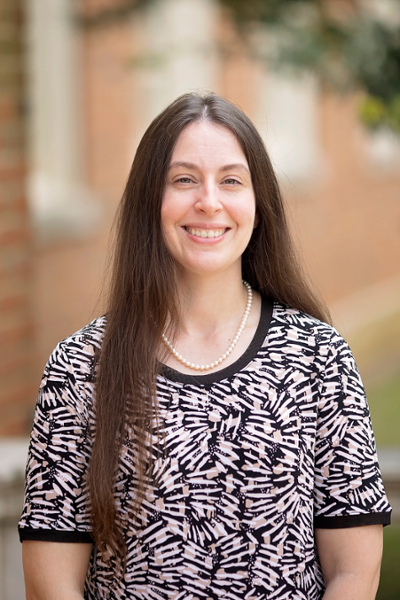
Carlissa Carson serves as an assistant professor at Cumberland School of Law. Before joining Cumberland, Carson managed Emory Law’s Volunteer Clinic for Veterans and taught at Emory Law as an adjunct professor.
She began her legal career as a litigation associate at Freeman Mathis & Gary in Atlanta, Georgia. She later served as district counsel for the U.S. Small Business Administration.
In addition to her role at Cumberland, Carson is a lieutenant colonel in the U.S. Air Force (Air National Guard). She serves as the staff judge advocate for an air refueling wing. Before joining the Air National Guard, Carson completed Army ROTC at Georgia Institute of Technology and served as a military intelligence officer and as a judge advocate in the U.S. Army Reserve.
Carson graduated from Emory Law (JD) where she wrote for the Emory Law Journal and participated in the International Humanitarian Law Clinic. She also graduated, with distinction, from Georgetown Law (LLM, concentration in international law and human rights). At Georgetown Law, Carson wrote for the Journal of Law and Public Policy and served as a teaching fellow.
Honors
- Marshall-Tuttle Award, State Bar of Georgia, 2023
- Meritorious Service Medal, U.S. Air Force, 2022
- Young Alumni Award, Emory Law, 2021
- Military Outstanding Volunteer Service Medal, U.S. Air Force, 2020
- Nuclear Deterrence Operations Service Medal, U.S. Air Force, 2013
- Top 99 Under 33 Foreign Policy Leader, Diplomatic Courier, 2012
- Army Commendation Medal, U.S. Army, 2011
- Atlanta’s Power 30 Under 30, Apex Society, 2010
Publications
- Restoring the Balance of War Powers: A Call to Repeal and Replace the 2001 Authorization for Use of Military Force, 62 San Diego L. Rev. 89 (2025).
- Conflicting Canons of Construction: The Aftermath in Veterans’ Law, 90 Brook. L. Rev. ______ (2025) .
- Scrap McDonnell Douglas and its Burden-Shifting!, 101 Neb. L. Rev. 393 (2023).
- Welcome to the Burn Pit: Where the Black Goo Oozes and the Green Ponds Glow, 82 La. L. Rev. 677 (2022).
- Yes We Can Revise the Military Commissions System, but Why?, 25 Conn. J. Int’l L. 389 (July 2010).
- The Military Commissions Act of 2006: How its Inability to Curb Abusive Interrogations Threatens the Future Treatment of Detainees and the United States’ Reputation, 57 Emory L.J. 695 (June 2008).
